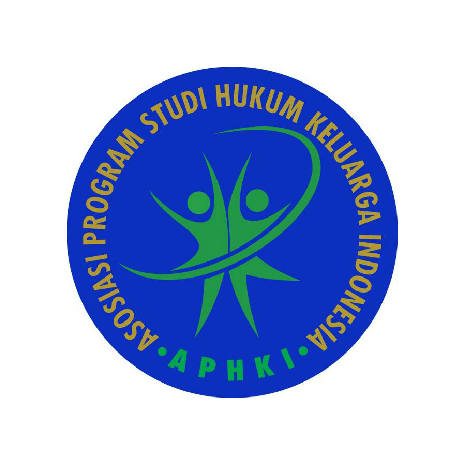Family Law Enforcement Problems and Islamic Heritage in Thailand
DOI:
https://doi.org/10.30983/alhurriyah.v6i2.5053Keywords:
Family Law, InheritanceAbstract
The Islamic Law on Family and Inheritance of 1946 was enforced only in the four southern provinces of Thailand consisting of Pattani, Narathiwat, Yala and Setun Provinces. Islamic law applies only to the plaintiff, defendant or applicant who submits a request must be Muslim. The problem of law enforcement consists of the lack of clarity in the terms of membership of the Provincial Islamic Committee in the 1997 Law on the Administration of Islamic Organizations. The problem of setting the condition that requires Datok Qadi to be alone in deciding matters of Islamic law. Datok Qadi's decision is absolute and cannot be appealed. The problem of limiting the enforcement of Islamic law can only be enforced in court. Solving the problem in avoiding the legal inconsistency can be done by expanding the enforcement of family and inheritance law outside the court. In addition, there is also a need for legal reform, both the Islamic Law on Family and Inheritance of 1946 and the 1997 Law on Administration of Islamic Organizations which are clearer.
Hukum Islam tentang keluarga dan warisan 1946 hanya diberlakukan di empat provinsi selatan Thailand yang terdiri dari Provinsi Pattani, Narathiwat, Yala dan Setun. Hukum Islam hanya berlaku bagi penggugat, tergugat atau pemohon yang mengajukan permohonan harus beragama Islam. Masalah penegakan hukum terdiri dari ketidakjelasan ketentuan keanggotaan Majelis Ulama Provinsi dalam Undang-Undang Tahun 1997 tentang Penyelenggaraan Ormas Islam. Masalah pengaturan kondisi yang mengharuskan Datok Qadi sendirian dalam memutuskan perkara hukum Islam. Keputusan Datok Qadi adalah mutlak dan tidak dapat diganggu gugat. Masalah pembatasan penegakan hukum Islam hanya bisa ditegakkan di pengadilan. Pemecahan masalah dalam menghindari inkonsistensi hukum dapat dilakukan dengan memperluas penegakan hukum keluarga dan waris di luar pengadilan. Selain itu, perlu juga dilakukan pembenahan hukum, baik UU Keluarga dan Kewarisan tahun 1946 maupun UU Administrasi Ormas tahun 1997 yang lebih jelas.
Â
References
Cheha, Muhammadzakee, Tumpang Tindih Hukum : Studi Kasus UU Penggunaan Hukum Islam di Provinsi Pattani, Narathiwat, Yala dan Satun, 1946. Jurnal AL-NUR Pasca sarjana, Universitas Islam Yala (sekarang Universitas Fatoni). Tahun ke 5, nomor 8, Januari-Juni 2010.
Krisdika, KUH Perdata dan Dagang: online, https://www.krisdika.go.th/librarian/ getfile?sysid=300167&ext=htm (diakses 1/11/ 2021).
Lembaran Negara, Statistik Penduduk Thailand pada tahun 2021: online, https://www.thaipost.net/main/detail/95898 (diakses 1/11/2021)
Maluleem, Jaran, Penerapan Syariat Islam di Thailand dan Dunia Muslim (1) : online, https://www.matichonweekly.com/special-report/article_424049 (diakses 1/11/ 2021)
Maneewit, Manoon, Permasalahan penegakan hukum Islam tentang keluarga dan waris di Provinsi Pattani, Narathiwat, Yala dan Satun, Fakultas Hukum Universitas Kasem Bundit, 2016.
Muhammad, Munir. Pengantar Hukum Islam. Bangkok: Pusat Buku Islam Bangkok. 2008.
Pengadilan hukum, Hakim: online, https://www.coj.go.th/th/content/page/index/id/12 (diakses 1/11/2021).
Sheikhul Islam, Undang-Undang Administrasi Organisasi Islam 1997: online, https://www.skthai.org/th/pages/24358 (diakses 1/11/ 2021).
Downloads
Submitted
Accepted
Published
Issue
Section
License
Authors who publish with this journal agree to the following terms:
- Authors retain copyright and grant the journal right of first publication with the work simultaneously licensed under a Creative Commons Attribution-ShareAlike 4.0 International License that allows others to share the work with an acknowledgment of the work's authorship and initial publication in this journal.
- Authors are able to enter into separate, additional contractual arrangements for the non-exclusive distribution of the journal's published version of the work (e.g., post it to an institutional repository or publish it in a book), with an acknowledgment of its initial publication in this journal.
- Authors are permitted and encouraged to post their work online (e.g., in institutional repositories or on their website) prior to and during the submission process, as it can lead to productive exchanges, as well as earlier and greater citation of published work (See The Effect of Open Access).













